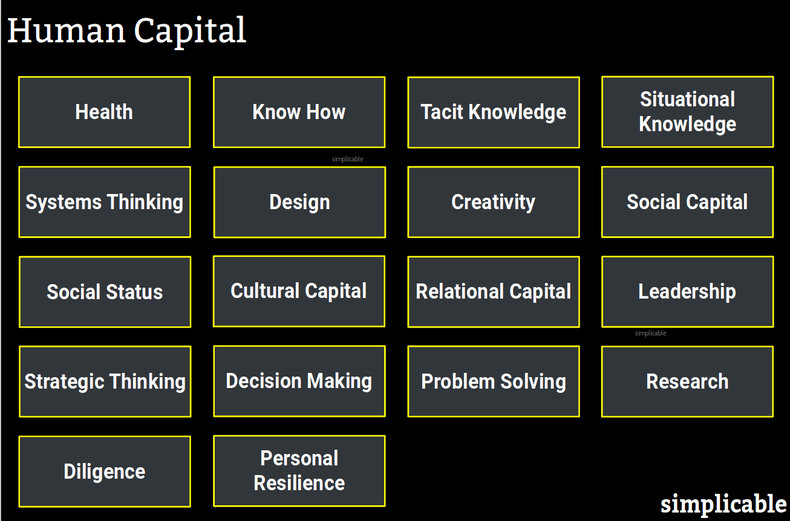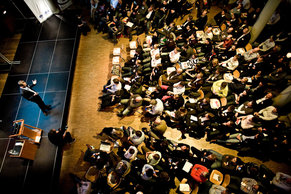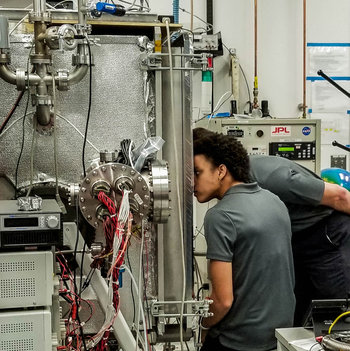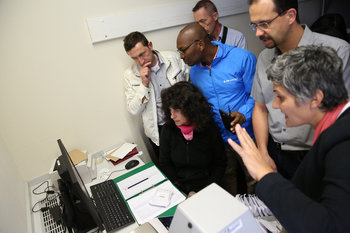

Health
The health of individuals influences their productivity. As such, a society with a healthy lifestyle, high quality of life and good healthcare system may be more productive.Know How
Practical knowledge that is applicable to creating value.Tacit Knowledge
Knowledge that you can't obtain from reading a book such as how to play the violin or hit a baseball.Situational Knowledge
Knowledge that is highly contextual. For example, a farmer who knows that a particular field has an unusual good terroir for grapes.Systems Thinking
Systems thinking is the ability to identify and analyze broad end-to-end impacts of actions.Design
The ability to create new things both tangible and intangible that are useful.Creativity
The ability to think beyond the obvious to identify valuable ideas that elude others.Social Capital
Social capital is the goodwill, fellowship and cooperation that exists in a society or organization that allows people to work productively as a group. For example, shared language, norms and manners.Social Status
The social standing of an individual in a group. For example, an accomplished professional athlete who is viewed with respect and admiration by fans.Cultural Capital
Cultural capital is the ability to influence within the context of a culture.Relational Capital
Relationships between organizations and people. For example, a sales person who knows everyone in your industry.Leadership
The ability to influence and motivate groups to achieve common goals.Strategic Thinking
Developing plans that achieve goals in a competitive and constrained environment.Decision Making
The ability to make high quality and timely decisions in an environment of change and uncertainty.Problem Solving
Finding reasonable solutions to problems including the ability to determine the root cause of a problem.Research
Research related skills such as information discovery, analysis and experimentation.Diligence
Placing your accountability and responsibility before more selfish urges.Personal Resilience
The ability to endure criticism and stresses without losing your enthusiasm.Human Capital vs Talent
The term human capital is somewhat contentious as people don't like to be compared to other types of capital such as money, land and machines. For example, human capital was voted the German Un-word of the Year in 2004 for being a degrading term that views people as financial assets.Historically, human work was referred to as labor by economists and not as capital. Human capital emerged to describe the vast differences in productivity between nations, organizations and individuals that make "labor" a poor description. People may prefer their productive capacity to be described with words such as talent or ability. Well received synonyms of human capital include human resources, knowledge capital, creative capacity, productive capacity, skilled labor and talent pool.| Overview: Human Capital | ||
Type | ||
Definition | The productive capacity of labor. | |
Related Concepts | ||






































